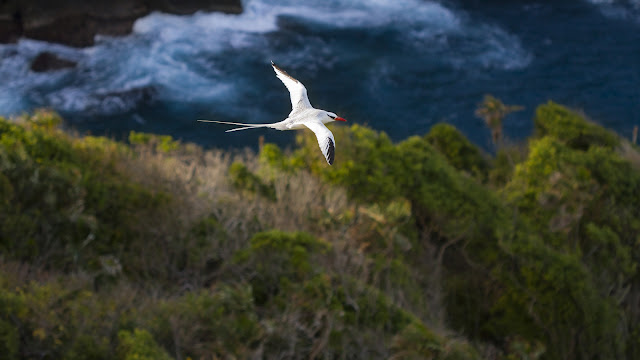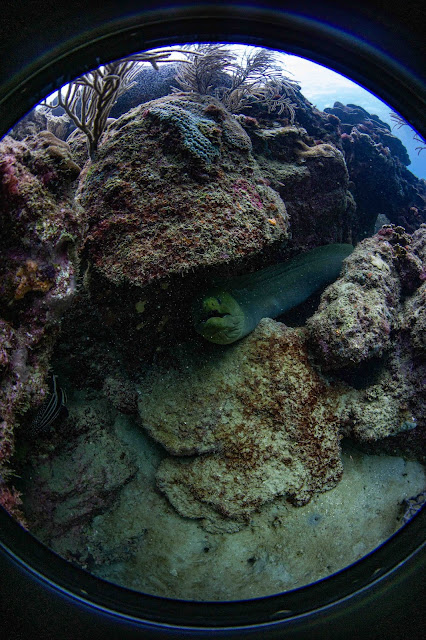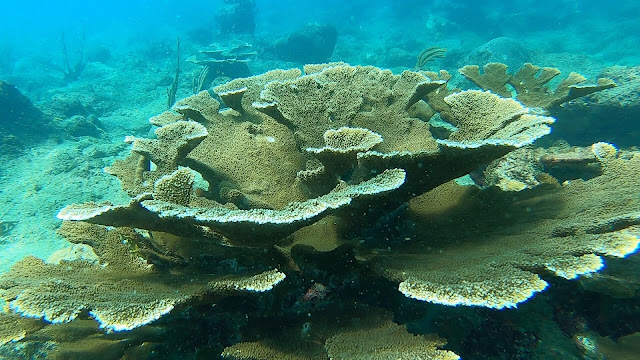Defend the Deep Ocean!
An exhibition of art with ocean themes was mounted at the Trinidad Art Society on Saturday, January 14, by the Sustainable Ocean Alliance (SOA) to encourage its audience to restore the ocean and defend the deep. It was a significant event in their on-going project to raise awareness about the threats posed by Deep Seabed Mining.
The Sustainable Ocean Alliance is working in support of a moratorium on Deep Seabed Mining sanctioned by the International Seabed Authority and likely to start as early as July this year, said Khadija Stewart, Coordinator of SOA Caribbean for Trinidad and Tobago.
The Sustainable Ocean Alliance is a global non-governmental organization started in 2014 to mobilize a network of young people in support of the world’s oceans. SOA “has cultivated the world's largest network of next-gen leaders, entrepreneurs, advocates, mentors, and partners, working to create solutions for the largest challenges facing our ocean.”
The Alliance has a footprint on all continents, Europe, Latin America, Asia, Pacific Islands and Australia, Africa, North America and the Caribbean. SOA has supported 222 startups, nonprofits, and grassroots initiatives all over the world, each dedicated to restoring and sustaining the health of our ocean. SOA is also allied with and in support of the work of the Deep Sea Conservation Coalition (DSCC).
The DSCC is made up of over 100 non-government organizations, fishers organizations and law and policy institutes working together to protect vulnerable deep-sea ecosystems. Its aims include reducing the greatest threats to life in the deep sea and safeguarding the long-term health, integrity and resilience of deep-sea ecosystems. DSCC also supports the moratorium on deep seabed mining.
The SOA Caribbean region has close ties with SOA Latin America. SOA has representation in Trinidad and Tobago and Jamaica, headquarters of the International Seabed Authority (ISA).
INTERNATIONAL SEABED AUTHORITY
With headquarters in Kingston, Jamaica, the International Seabed Authority came into existence on 16 November 1994, upon the entry into force of UN Convention on the Law of the Sea UNCLOS). ISA became fully operational as an autonomous international organization in June 1996, when it took over the premises and facilities in Kingston, Jamaica previously used by the United Nations Kingston Office for the Law of the Sea.
All States that are parties to UNCLOS are members of DISA. As of 1 May 2020, ISA has 168 members, including 167 States and the European Union.
The International Seabed Authority is mandated under the UN Convention on the Law of the Sea to organize, regulate and control all mineral-related activities in the international seabed area for the benefit of mankind as a whole.
In so doing, ISA has the duty to ensure the effective protection of the marine environment from harmful effects that may arise from deep-seabed related activities.
The ocean occupies over 70% of earth’s surface; of which about 54% is open sea outside any national jurisdiction; this is known as The Area that is under the purview of ISA. The Area and its resources are the common heritage of mankind. The Area covers around 54% of the total area of the world’s oceans.
MORATORIUM ON SEABED MINING
SOA has articulated its position as follows. It
is supported by independent scientists who make the connection between the
health of the ocean, biodiversity and climate change.
“We believe a moratorium is necessary to:
1. Undertake comprehensive and independent scientific research to better
understand the deep-sea’s unique biodiversity, the seabed’s larger role in our
ocean and climate systems, and the risks deep-seabed mining poses to the
protection and prosperity of our ocean;
2. Allow appropriate time for governments and private sector to invest in and
expand the circular economy and additional innovative technologies that will
reduce our future reliance on extractive industries and the unsustainable
linear economy;
3. Review the International Seabed Authority’s (ISA) dual mandate as both the
profiter and steward of the international seabed and assess if the ISA is
fit-for-purpose to ensure the protection of the “common heritage of mankind”;
and
4. Ensure the ISA’s decision-making processes are inclusive, transparent,
accountable, and adequately account for intergenerational equity.”
They assert, “As the generation inheriting this planet, along with those who have watched its decline over the last century, we adamantly oppose the unjustified risk of deep-seabed mining and call on you to stand with us in support of a moratorium on deep-seabed mining. …We ask you to stand for science, stand for the ocean, and stand for the rights of current and future generations.
“The decisions on whether or not to
mine the seabed are being made right here in our
backyards in the Caribbean, in Jamaica, at the
International Seabed Authority (ISA). Jamaica and Trinidad and Tobago are both
important voices at the ISA, because they sit
on the council. As island nations whose destinies are
inherently entwined with the ocean, we
urgently need to see Caribbean nations taking a stand
against deep sea mining.”
 |
SOA TRINIDAD AND TOBAGO Depictions of Ocean created by young artists were curated by the Trinidad and Tobago members of the Sustainable Ocean Alliance.
|




